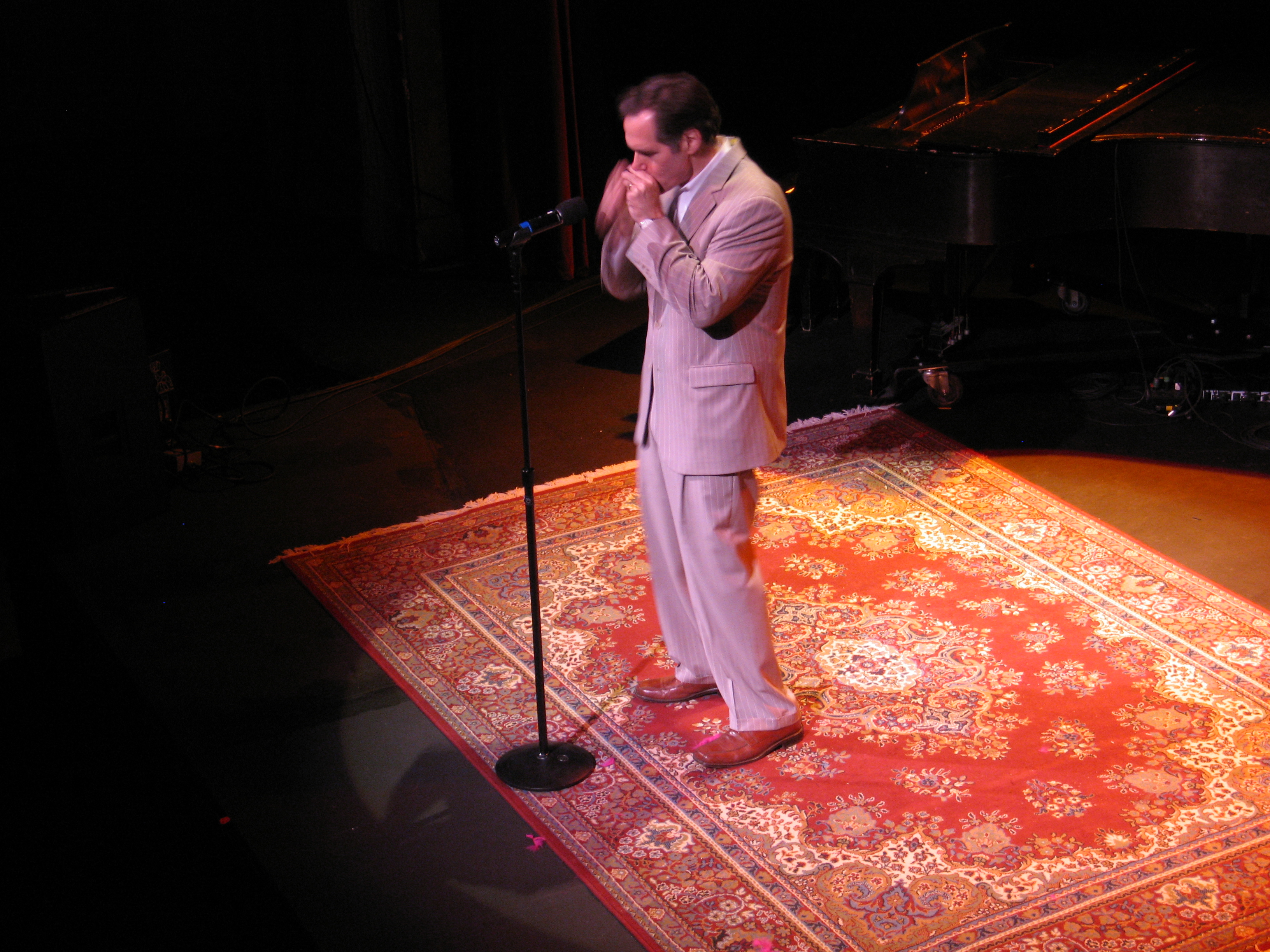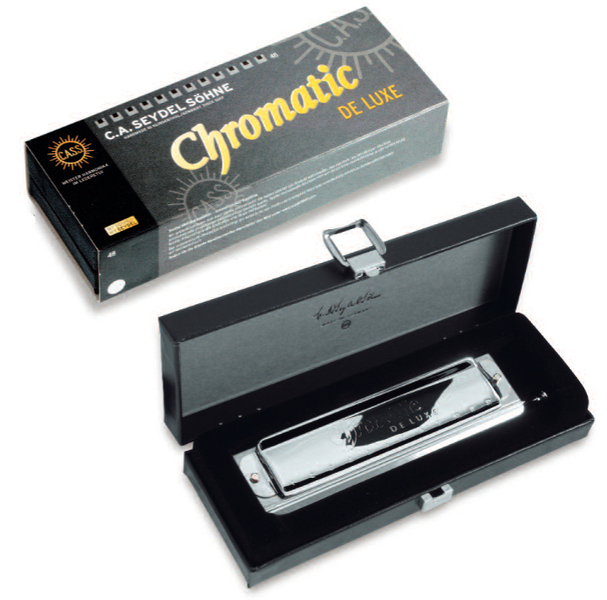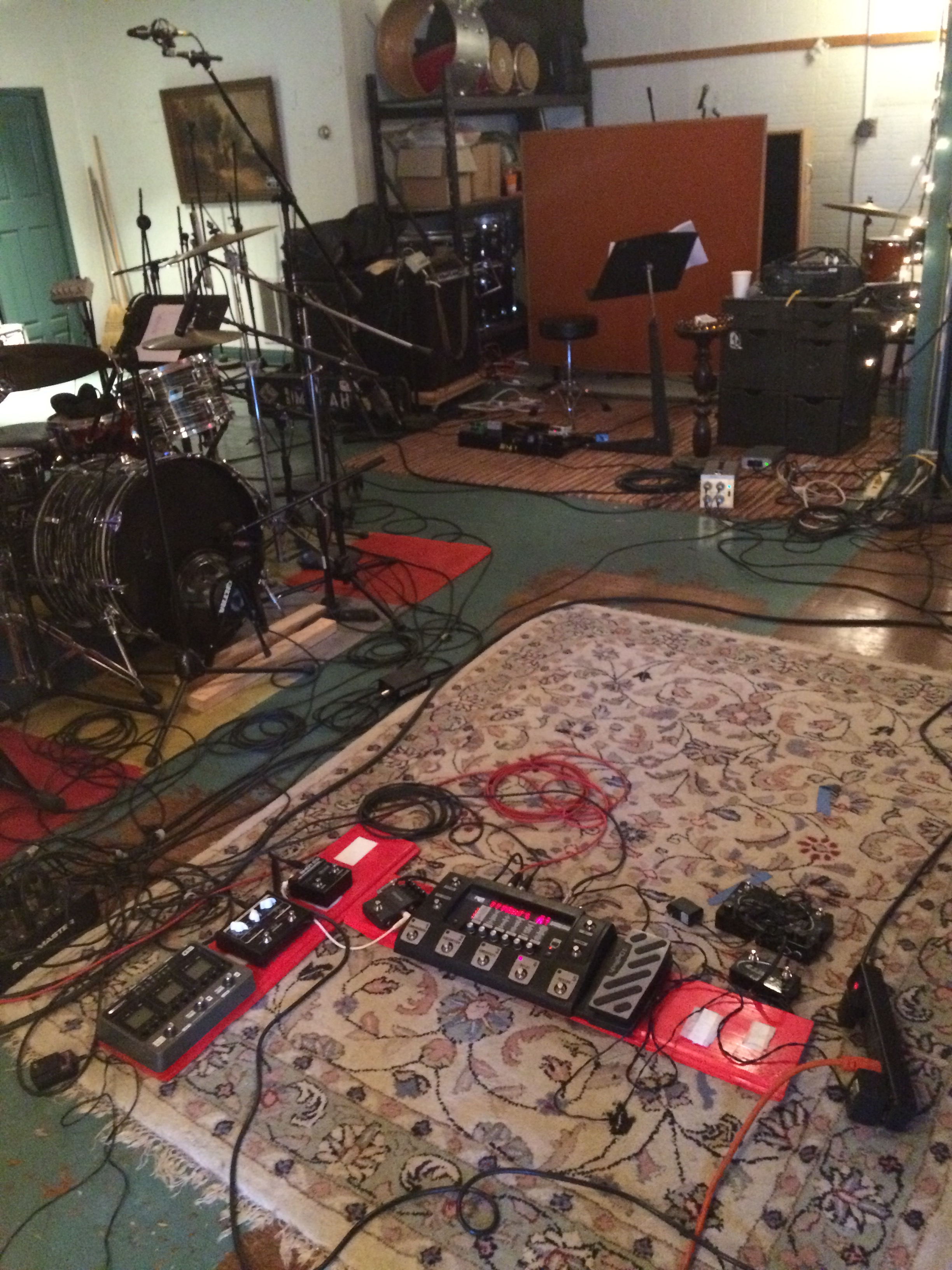
Sitting In
First things first: when you present yourself to a band and ask to sit in, do it in a way that shows them you’re capable, serious, and respectful of their gig and their music. Before you even ask, sit down and listen to them play for a while. If you like what you hear, get ready to ask for the opportunity to sit in. Otherwise, finish your drink and leave. Don’t degrade yourself or the band by asking to play with someone whose music you don’t like.
I usually start my approach by commenting on something the band played in the last set that caught my ear, and I comment on it in a way that shows I was listening carefully–“I really like the way your guitarist and bass player did that breakdown on the third song in the set”, for example, “especially when…”. Then I tell them a little about myself–what I play, where I play it, and so on. Then I tell them that I’d love to sit in with them. If the answer is yes, we move on to what and when. If the answer is no, I thank them politely, tell them again how much I enjoyed the music, and tell them where they can hear my music sometime if they’re so inclined.
That’s how you get on stage. The next thing you do is make sure that everything you play makes the whole band sound better–not just yourself. When you make the band sound better–when your make THEM shine–you’re a welcome guest anytime you show up. If you don’t make the band sound better, you’re not going to get another chance. So above all, once you’re onstage, LISTEN to everything that’s going on around you. The biggest difference between amateurs and pros isn’t how well they play, really–it’s how well they listen.
Don’t be afraid to play nothing at all for parts of the songs you play–maybe the only place you can make it sound better is with one note on the chorus, and if that’s what it is, that’s great! I once sat in a with a band playing Sting’s “If I ever Lose My Faith in You”, and all I did was play a high, long 9th on every chorus following the vocal line–but when I played that note, everybody in the band lit up and smiled, because it was a new sound that worked for the song.
You don’t have to play all the time to sound great. When you leave some space for everybody else, you show how well you’re listening and contributing to the band–you show that you’re a musician, as opposed to somebody who happens to play an instrument a little. (That said, if the song needs harp everywhere, give it to them!)
The best way to learn is by playing with others, especially people who play better than you do, as often as possible. So when you know you have something to contribute to the sound of the band, go for it. You’ll know when you do–just listen (did I mention that listening is really important?), and ask yourself what you would play to make it sound even better. If you’re not thinking about making the band sound better, then you’re just thinking about impressing somebody, which of course you won’t.
I guess it’s all about respect for yourself, the band, and the music, huh? Get that right, and it’s a lot of fun, too.
Related Posts
Leave a Reply
You must be logged in to post a comment.
WHAT’S NEW
Categories
- Audio/Video
- Blog
- Blue Future
- Digitech RP Tricks and Tips
- Discography, CDs, Projects, Info, Notes
- Featured Video
- For the Beginner
- Gallery
- Hunter's Effects
- Hunter's Music
- Huntersounds for Fender Mustang
- Meet the Pros
- More Video
- MPH: Maw/Preston/Hunter
- My Three Big Contributions
- Player's Resources
- Pro Tips & Techniques
- Recommended Artists & Recordings
- Recommended Gear
- Recorded Performances
- Reviews, Interviews, Testimonials
- The Lucky One
- Uncategorized
- Upcoming Performances
- Zoom G3 Tips and Tricks


